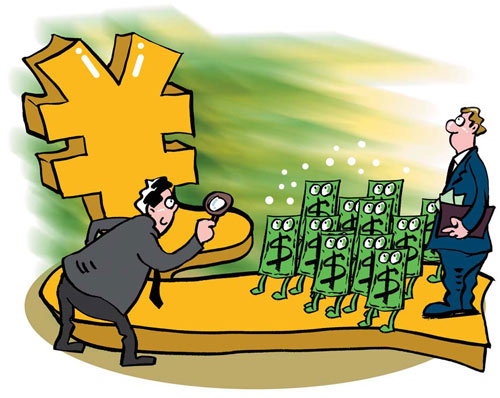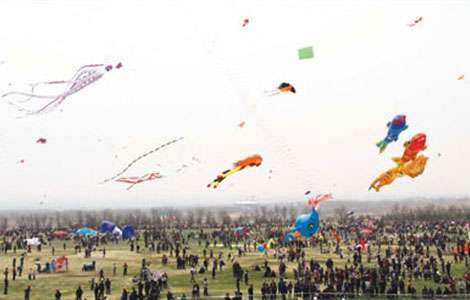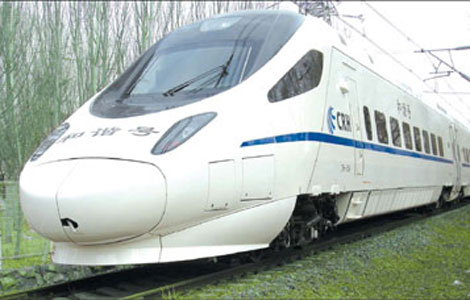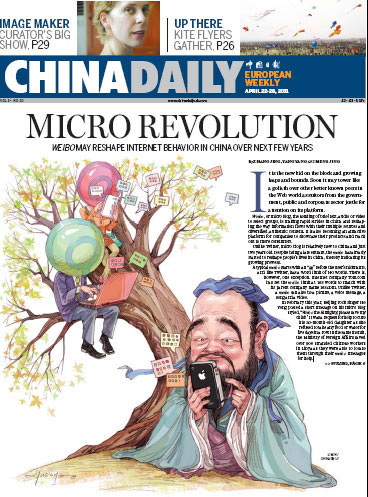Deficit fears a non-issue
Updated: 2011-04-22 10:36
By Mei Xinyu (China Daily European Weekly)
|
 |
China registered a trade deficit of $1.02 billion (700.3 million euros) in the first quarter of this year, the first in six years, because of a slowdown in exports amid shrinking global demand. But despite that, it is likely to maintain an annual trade surplus for the full year.
Though varying factors across the world, including the United States government's deficit, the lingering European sovereign debt crisis and the unrest in the Middle East and North Africa, have heightened the sense of economic uncertainty, they are unlikely to derail global recovery. Besides, China's exports will probably rebound thanks to the strong demand from Japan, which is struggling to emerge from the impact of the earthquake, tsunami and the nuclear plant meltdown.
The increase in the amount and prices of imported bulk commodities played a major role in increasing China's imports and thus the quarterly trade deficit. According to the General Administration of Customs, China's iron ore imports grew by 14.4 percent to 180 million tons in the first quarter, while the average price rose by 59.5 percent year-on-year to $156.5 a ton. Soybean imports dropped by 0.7 percent to 10.96 million tons, but its average price increased by 25.7 percent to $573.9 a ton.
With the political unrest in Libya driving oil prices to a two-and-half-year high of $108 a barrel, there are fears that China's growing expenditure on primary commodities could go through the roof. But even if primary commodity prices rise to such an extent that China's trade balance is reversed, as it was in the first quarter, they will not pose a big problem provided other factors remain unchanged.
Why? On the one hand, prices of China's manufactured commodities will increase in accordance with the prices of imported primary commodities, which in turn will increase the country's exports value. On the other, global demand for primary commodities will probably drop because of rising costs, reducing their prices in the process. In either case, China can maintain its annual trade surplus.
Moreover, given the unexpected pressure of inflation and asset bubbles, the world's major economies will probably loosen their monetary policies, which will curb the inflated prices of bulk commodities.
It should be noted that some of the fastest growing imported commodities, despite having caused the quarterly trade deficit, would expedite the import substitution process and boost related exports.
For instance, China's mechanical and electrical imports in the first quarter grew by 25.6 percent year-on-year to $172.9 billion, among which were consumer goods like automobiles that grew by 31.8 percent year-on-year to 236,000 units. But a large part of the imports were investment goods like technical equipment, which will continue to increase in volume given China's efforts to upgrade its industries and develop manufacturing. And the growing investment imports, either as an alternative to older imports or a boost for China's export capability, can improve the country's trade balance in the long term.
Viewed in this light, there is no need to worry over the quarterly trade deficit. What should draw the government's attention instead is the over-expanding productivity at home because of soaring prices of primary commodities in the global market.
In recent years, the rising price of iron ore has stimulated domestic production. The quality of metallic minerals mined in China, in general, is lower than the imported ones. Hainan province, deemed the only producer of high-grade iron ore in China, has a limited reserve with a quality just equal to one-third of the Brazilian variety. So once the bubbles in the primary commodities' markets burst, global mineral prices will fall, and domestic manufacturers, forced to opt for low-grade domestic minerals because of cost, will restart importing high-grade minerals and push the domestic mining industry into a crisis.
It is thus important that the government orientates domestic mineral resources and mineral imports. China's mineral resources are comparatively of poor quality and difficult to develop and, hence, create environmental damage and high development cost. Most domestic coal, oil and metal resources do not measure up to development value. So domestic mineral resources hardly meet the domestic industrial demand, and their overuse will degrade the competence of the manufacturing industry and threaten economic security.
If China continues to rely on domestic resources, the downstream sectors would have to pay more for raw materials than their overseas counterparts. And if environmental damage is taken into account, the cost will be immense. Furthermore, the distribution of mineral resources in China is quite uneven, and bulk minerals are generally found far from economic centers and sea routes, and require huge transportation cost. For instance, Guangdong province has been importing coal from Australia since the 1990s, and still paying less than what it would have to if it bought and transported it from Shanxi province.
Notably, the export sector accounts for a large part of the consumed resources. Thus, the government should be cautious against exhausting domestic resources for the overseas market and compromising its economic, political and even military security.
China, therefore, should maintain the balance of payment, ensure domestic supplies, minimize the cost of supplies and maximize profit. In other words, it should use overseas resources to its advantage, particularly when the prices are fairly affordable, and save domestic mineral resources to stabilize global prices and domestic supplies.
The author is a research scholar with the Chinese Academy of International Trade and Economic Cooperation, affiliated with the Ministry of Commerce.
E-paper

Blowing in the wind
High-Flyers from around the world recently traveled to home of the kite for a very special event.
Image maker
Changing fortunes
Two motherlands
Specials

Models gear up car sales
Beauty helps steer buyers as market accelerates.

Urban breathing space
City park at heart of Changchun positions itself as top tourism attraction

On a roll
Auto hub Changchun also sets its sight on taking lead in railway sector
